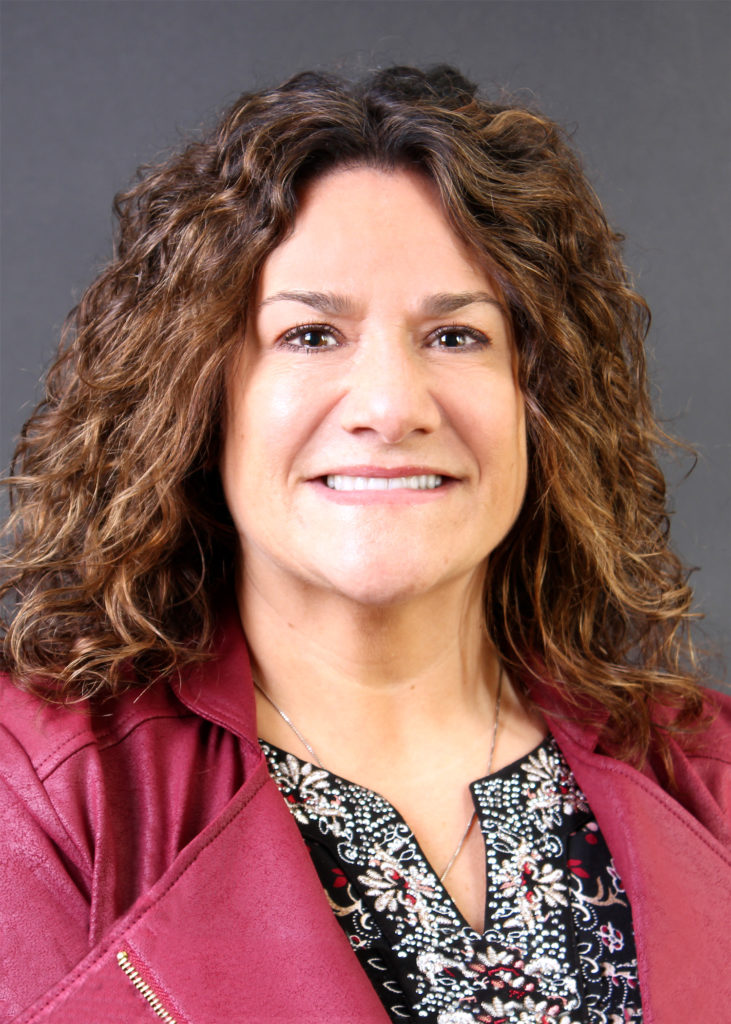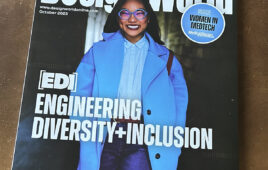Brenda Discher, Senior Vice President of Strategy and Marketing, Siemens Digital Industries Software
Bachelor of Science in Mechanical/Industrial Engineering and a Master’s of Business Administration in International Marketing and Finance from Eastern Michigan University
Brenda Discher is senior vice president of strategy and marketing for Siemens Digital Industries Software, a business unit of Siemens Digital Industries. In this role she leads industry strategy, business strategy and marketing, and advises on strategic business and technology acquisitions. She also manages global brand, communications, and digital go-to-market strategies to establish the company as a market leader in the manufacturing industry for enterprise and SMB customers. With more than 20 years of success in bringing technology products, brands and businesses from inception to market, she is experienced in driving change, brand innovation and deep customer engagements to ensure customers use and expand their IT investment.
Prior to joining Siemens, Discher spent more than 20 years in various leadership positions at Autodesk in marketing, product management and customer service and support.

Brenda holds a Bachelor of Science in Mechanical/Industrial Engineering and a Master’s of Business Administration in International Marketing and Finance from Eastern Michigan University.
Brenda and her family live in the greater Detroit area.
Talk about the culture of your company. What makes it inclusive or supportive of women in engineering and automation?
At Siemens, we value diversity as the inclusion and collaboration of different thinking, backgrounds, experience, expertise and individual qualities across all organizational levels and dimensions. Diversity gives Siemens an advantage over the competition. We sit in 45 countries with different nationalities, different backgrounds, different cultures and experiences, working together as one global team, and a very successful one. Our Diversity & Inclusion program includes 12 Employee Resource Groups that cover areas from Veterans to Emerging Professionals to the Women’s Impact Network, Black Employee Community to Health & Wellness. They provide ways for groups to support different initiatives and champion causes within and outside the company, like sponsorship, attendance and participation as panelists at the Society of Women Engineers, the Grace Hopper Celebration conference, or the Women of Color STEM Conferences. In addition, I have implemented the Women’s Mentor Circle program as part of the Women’s Impact Network (WIN) at Siemens here in the US.
What first drew you to engineering and this industry?
I have always been fascinated by how things worked, and when I was a child, it was quite common for me to take things apart and put them back together just to see their inner workings. Any device was up for grabs, including almost every toy my two younger brothers possessed, like Matchbox cars or Lego blocks. I didn’t know it at the time, but mechanics, physics, friction and other aspects of engineering were taking hold.
Two pivotal factors during high school piqued my interest in engineering and set me on a path to becoming a mechanical engineer. The first was that I had a ninth-grade math teacher, Mr. Leckrone, who encouraged me and truly sparked my love for mathematics. The second factor was that my parents owned an automotive tool and die shop about an hour northwest of Detroit; my stepfather was in R&D and my mother was the company’s accountant. The shop was located just a few blocks down the street from my high school, so I regularly went there in the afternoons. I spent most of my free time hanging out in the shop with the manufacturing engineers who worked on lathes, milling machines and general fabrication. So, it was by this curiosity and ability that my fascination with STEM developed.
Describe your biggest career challenge. How did you solve it — or what was the outcome or lesson learned?
Upon graduating, I started working for Schlumberger, a global oilfield services company. Working in the CAD/CAM department in Ann Arbor, Michigan, I learned what it was like to be a woman in a male-dominated industry and workplace. I was promoted to a managing role quickly and started teaching older men in the software and training/development group to use a new interface. I constantly heard rude jokes and experienced inappropriate behavior towards me, like “How can a pretty little thing like you think you teach an old guy like me a new software tool?” There was little opportunity to talk to someone about the issue; I worried HR wouldn’t take me seriously, or that it would affect my promotability. So I told myself, “Suck it up.”
While I had developed a thick skin to deal with that sort of thing, the most unsettling time came when I was doing a presentation along with four men in front of a large group of executives. After I was introduced, one of the male executives in the audience shouted, “I don’t need to hear what they have to say, I’ll buy whatever she is selling!” I was horrified. But I bit my tongue, did my presentation—I killed it, by the way—and then left the room to call my mom. She told me I should avoid being around this man at all costs. This same man pursued me as I left, again giving me unwanted attention: He asked me if I wanted to go out for a drink. I refused. When I spoke to human resources about the problem, I was told that if I raised any red flags, it could reflect poorly on me. It was dealing with these kinds of behavior that have been the biggest challenges in my early career.
What career advice would you give to your younger self?
I regret not raising my voice and standing up for myself when I was treated poorly by men. It was a hard lesson to learn, but I know now that if women don’t speak up, then nothing will change. There are three pieces of advice that I benefitted from and would like to pass on:
1. Have a great mentor and advocate. It is important that women engineers actively engage with younger women, encourage them, mentor them and advocate for them. You can make a major impact if you mentor just one or two women who could eventually become an engineer. Best of all, it’s a fairly easy thing to do, and it’s very rewarding!
2. Build a personal network. Every position and job opportunity I had, including my current one here at Siemens, would not have happened if I didn’t tap into my network. It’s not about popularity; it’s about having a network of people you trust and stay in regular contact with.
3. Plan your career. We live in a world where things are unpredictable. Carefully think about yourself and your goals, so that when an opportunity presents itself, you can take advantage of it. If I wasn’t self-managing my goals, I wouldn’t have been able to take advantage of ideas when they presented themselves.
Filed Under: Engineering Diversity & Inclusion




